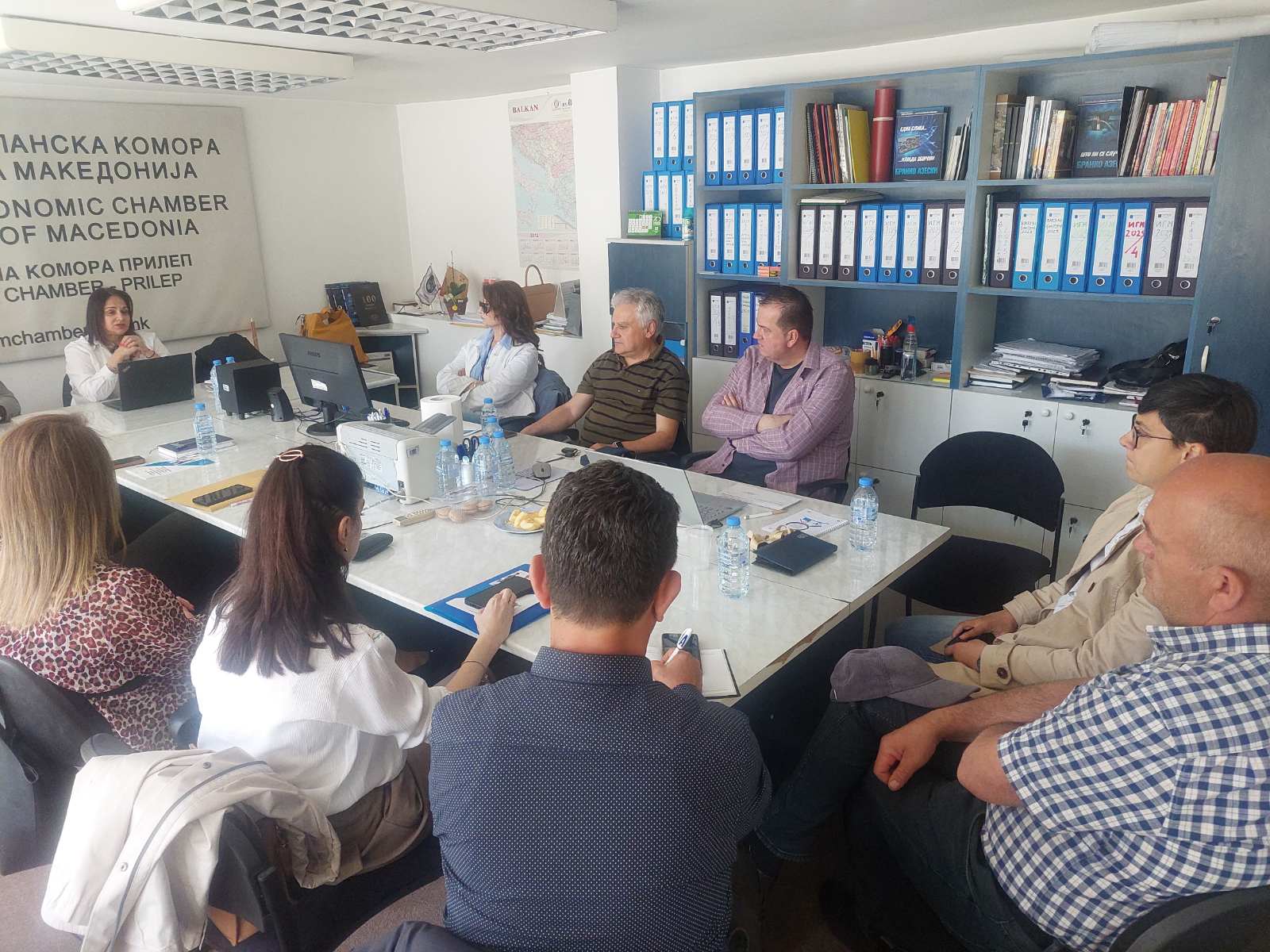„Dimitrie Cupovski“ 13, 1000 Skopje +38923244000 ic@mchamber.mk
„Dimitrie Cupovski“ 13, 1000 Skopje +38923244000 ic@mchamber.mk

The challenges in dual education were the focus of a meeting held in Prilep, organized by the Regional Chamber in Prilep. The meeting included a productive discussion and exchange of experiences among representatives from local companies engaged in dual and vocational education, representatives from vocational secondary schools, and representatives from local government—which plays a key role in providing skilled labor to meet the needs of the business sector.
At the beginning of the meeting, Natasha Janevska, M.A., Project Manager at the Economic Chamber, who works in the field of educational policies and ensuring workforce development tailored to business needs, presented the latest updates in the long-awaited Law on Vocational Education and Training, which came into force in January 2025. These updates include the systemic regulation of the Macedonian model of dual education, the establishment of regional centers for vocational education and training, and the further regulation of post-secondary education.
Participants were also informed about the development of a new Concept for Vocational Education and Training, which will specify that two-year vocational education programs leading to a Level II qualification will be recognized as part of compulsory education. The recognition of two-year education will ensure greater student enrollment in such qualifications, providing them the opportunity to obtain a diploma and immediately join the workforce—unlike the previous situation, where two-year education was not recognized within the formal education system. This led to student disinterest, as they were forced to enroll in three- or four-year programs despite a lack of interest in this type of education, resulting in diplomas being obtained without the acquisition of real knowledge or skills. The new concept also envisions permeability between different qualification levels, allowing students to obtain multiple qualifications and greater recognition in the labor market.
In the second part of the meeting, a discussion was held regarding the problems faced by both companies and schools in the implementation of dual education and the organization of practical training.
1. Legal or bylaw regulation of the role of the work-based learning coordinator, as is the case with all other job positions in education;
2. Revision of entry requirements (points) for enrollment in vocational schools for certain qualifications, with the note that there should be no reduction of points in the second enrollment period;
3. Extension of the deadline for free student transport until June 30, to allow students to complete their summer internships. Due to the financial situation of families, especially in rural areas, some students are forced to obtain confirmation of completed internships without actually completing them, which affects the quality of students’ practical education;
4. A change in the approach to promoting enrollment in dual education—focusing not on scholarships, but on the acquisition of professional skills and student employability;
5. Clarification of the outcome of state-funded scholarships in dual education (whether they will continue for all enrolled students or be linked to academic performance);
The consensus among all meeting participants was that these conclusions should be submitted to the Minister of Education and Science, along with a statement explaining the difficulties faced by all stakeholders—difficulties that stem from government and ministry policies.